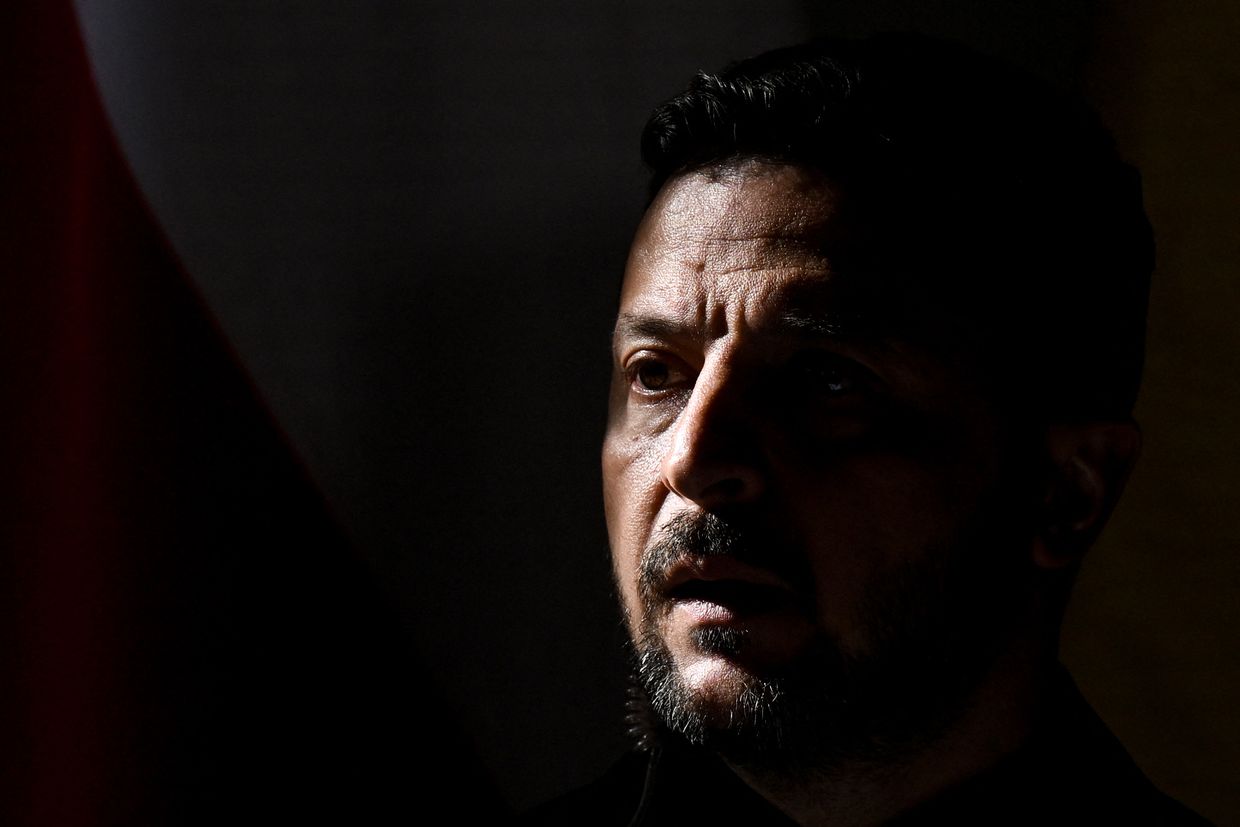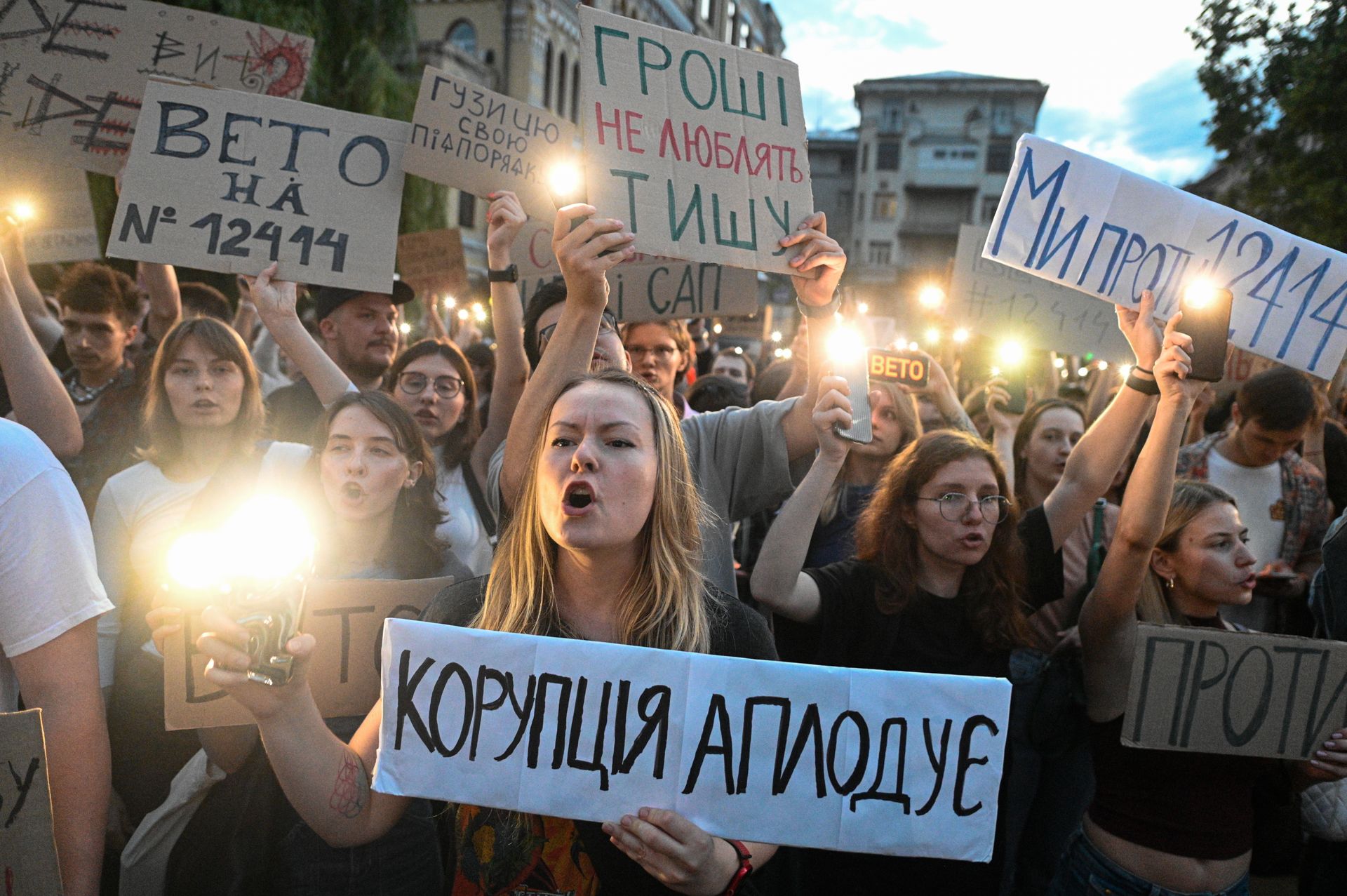'We all hear what society is saying' — Zelensky vows anti-corruption plan within 2 weeks amid backlash over controversial bill

Ukraine's law enforcement and anti-corruption institutions will present a joint action plan within two weeks aimed at strengthening the justice system, President Volodymyr Zelensky said on July 23.
The statement comes a day after the president signed a new law that is widely seen as effectively destroying the independence of two key anti-graft bodies, the National Anti-Corruption Bureau (NABU) and the Specialized Anti-Corruption Prosecutor's Office (SAPO).
Thousands of Ukrainians took to the streets on July 22 to protest the bill as criticism mounts in society. European leaders have also criticized the move.
Speaking after a high-level meeting with the heads of Ukraine's top law enforcement and anti-corruption bodies, Zelensky said the leaders agreed to develop coordinated reforms to restore public trust and ensure accountability.
"We all hear what society is saying," Zelensky said. "We see what people expect from state institutions — ensured justice and the effective functioning of each institution.
"We discussed the necessary administrative and legislative decisions that would strengthen the work of each institution, resolve existing contradictions, and eliminate threats."
The meeting included representatives from NABU, SAPO, the Security Service of Ukraine (SBU), the National Agency on Corruption Prevention (NAZK), the State Bureau of Investigation (DBR), the Interior Ministry, and the Prosecutor General's Office.
The high-level meeting came as opposition lawmakers and civil society groups continue to push back against the legislation signed on July 22, which significantly expands the prosecutor general's powers over NABU and SAPO, institutions previously designed to function independently of political influence.
In a joint statement following the meeting, NABU and SAPO reemphasized that the recent legislative changes "significantly undermine the independence" of their institutions.
"From now on, NABU and SAPO are deprived of the guarantees that previously enabled them to effectively fulfill their mandate in combating high-level corruption," the statement read.
The agencies stressed that restoring full and independent operations will require "clear and unambiguous legislative steps" to reinstate the safeguards removed by parliament.
"The rule of law and compliance with the law remain unchanged values for NABU and SAPO. We expect the same approach from other law enforcement agencies," the agencies wrote.
Later the same day, Zelensky announced further plans to submit a bill to parliament that would "ensure the strength of the law enforcement system" and preserve "all the norms for the independence of anti-corruption institutions."
"Everyone has heard what people are saying these days — on social media, to each other, on the streets. This is not in vain," he said in a similar statement to earlier in the day.
"There will be no Russian influence or interference in the activities of law enforcement agencies, and — very importantly — all the norms for the independence of anti-corruption institutions will be in place."
There is no evidence that the new legislation is linked to Russian influence.
Kateryna Butko, head of the anti-corruption watchdog AutoMaidan, told the Kyiv Independent that the provision allowing the prosecutor general to remove cases from NABU is unlikely to affect potential Russian agents.
The law, passed swiftly by lawmakers from Zelensky's party and signed the same day, sparked nationwide protests and is expected to be challenged at the Constitutional Court. Yaroslav Zhelezniak, a lawmaker from the opposition Holos party, said parliamentarians have begun collecting signatures to launch the constitutional review process, which requires the signatures of at least 45 MPs.
Zhelezniak argued that the bill violated parliamentary procedures and threatens Ukraine's commitments to the European Union.
Another Holos lawmaker, Inna Sovsun, said her team has already drafted an alternative bill aimed at repealing the new law and restoring institutional independence to the anti-corruption agencies.
Critics say the new framework reclassifies NABU and SAPO as ordinary law enforcement bodies, giving the prosecutor general authority to interfere in investigations, issue procedural orders, and block corruption cases.












